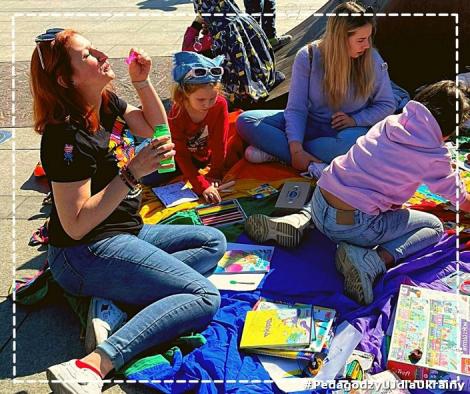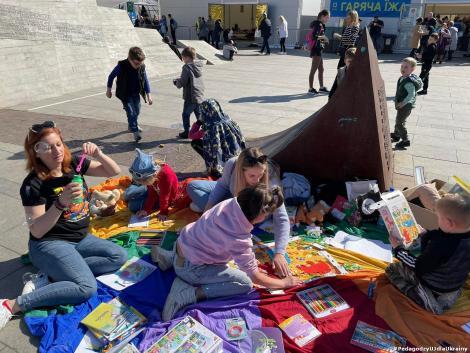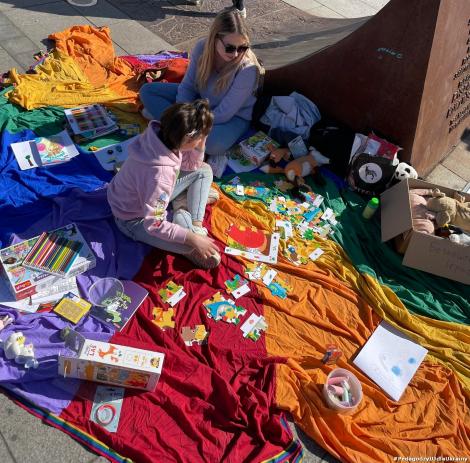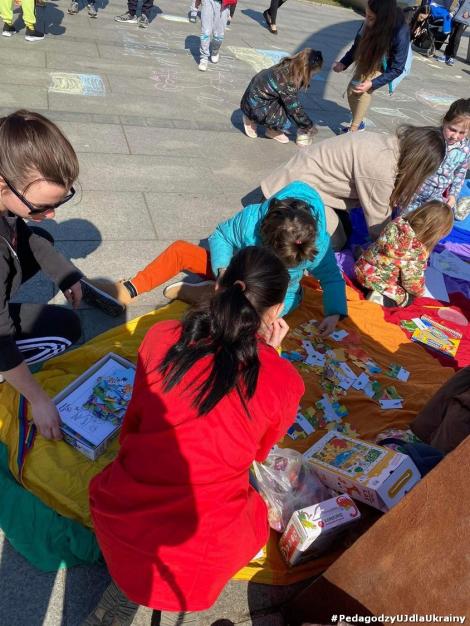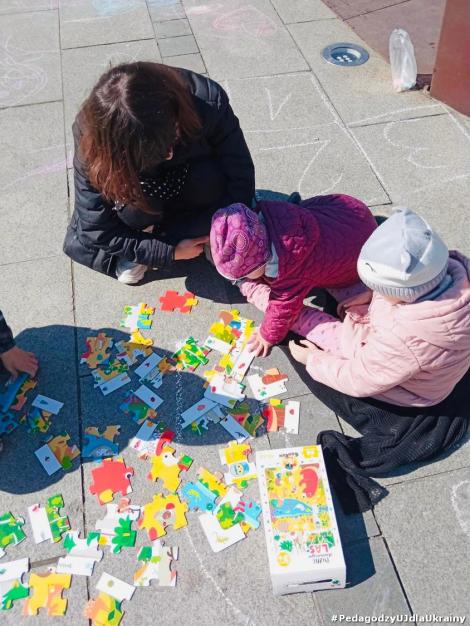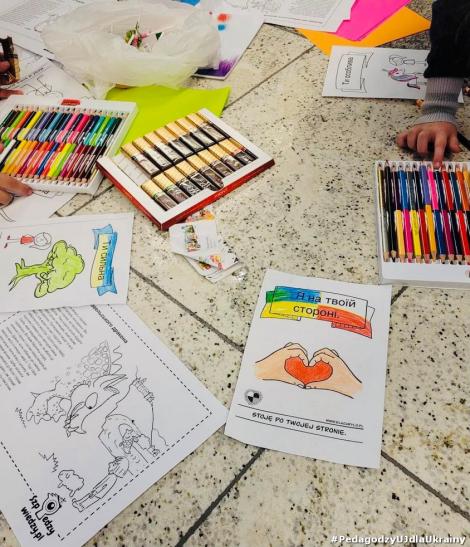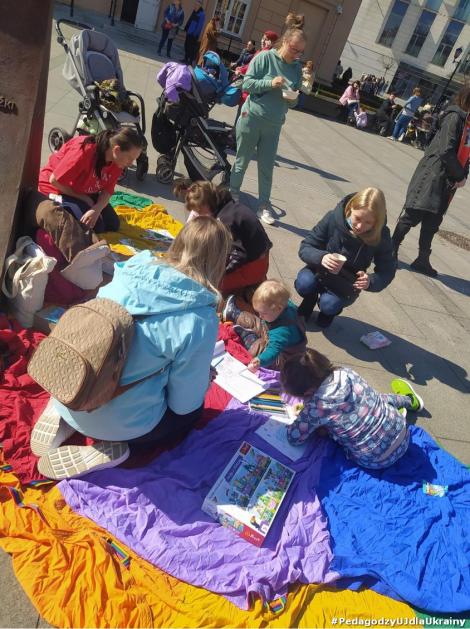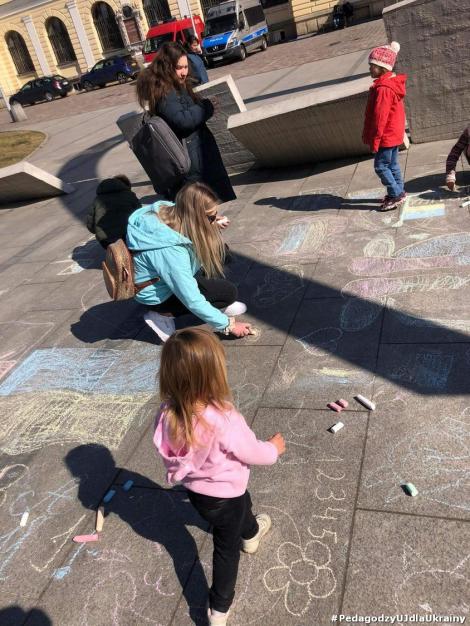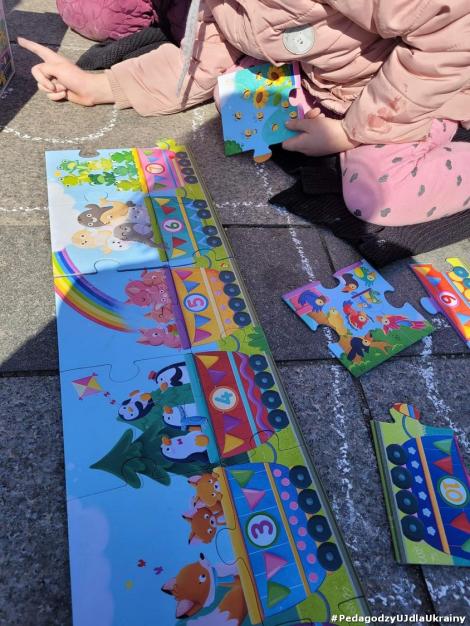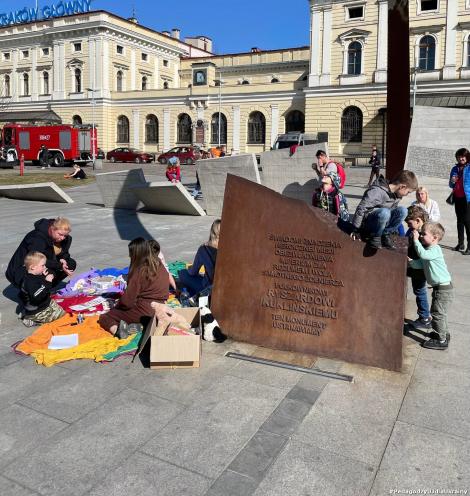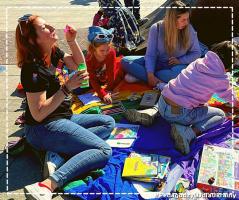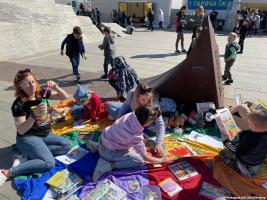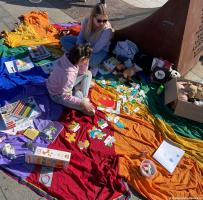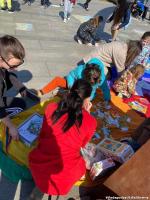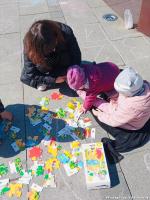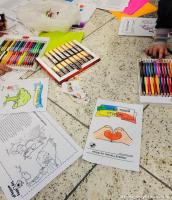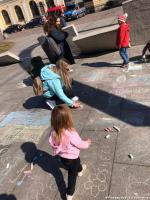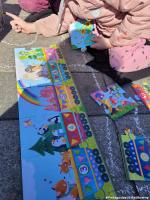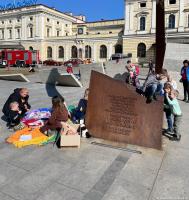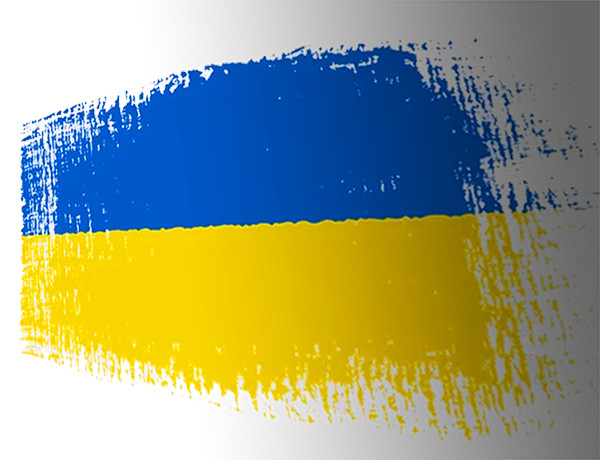
Today marks the second anniversary of the full-scale Russian invasion of Ukraine. According to UN estimates, around 6.5 million people have left the country of our neighbour. Below is a text by Professor Małgorzata Michel from the Institute of Pedagogy summarising the #JU Pedagogues for Ukraine streetworking campaign.
The war in Ukraine is the language with which modern Russia portrays the essence of its political identity. The abandoned bodies of slain civilians, the fate of raped women tell Ukrainians: "We want to destroy you, because you have no right to be a sovereign state. You will be part of the Russian mir or there will be no you at all'.
Jan Tokarski
Philosopher, historian of ideas. Doctor of Humanities at the Institute of History of the Polish Academy of Sciences.
#PedagodzyUJdlaUkrainy i co dalej?
I never thought I would be packing a bag for war. I had no idea what should be in it. Warm socks, a jar of soup, fitness bars, a first aid pack, a card with a good word and a peace sign. It was just two days after news of the outbreak of war in Ukraine woke us all up on the morning of 24 February 2022. What war? For God's sake, this is the 21st century, I thought. On the night two days after that wake-up call, I was picking up a mother of two children from the airport. She was returning from India to Lviv. "The point of everything" was in Krakow at the railway station. It was organised spontaneously by volunteers. At the time I still didn't know how much time I would have to spend there. The bag was for her. For she did not know how long the journey home would take. That's why the soup in the jar was wrapped in a towel, just in case. Long warm. Her return home, however, turned out to be quick. Just another helping of good people on the way from India and she was already with her children in Lviv. Apparently the soup was tasty and the bars sweet. She gave the first aid package to the soldiers at the border. She sent me a photo with her children.
It wasn't long before I was driving to work and from a distance I saw an image I had previously only known from documentaries. A grandmother, a grandfather, a young woman pushing a pram with a baby in it and a dashing little girl hanging on. They were walking among suitcases and bundles. I stopped. The children, mother and luggage managed to be packed into the car. The grandfather and grandmother were to arrive by bus. The language of assistance eludes understanding and grammatical rules learned at school. Everything between us was clear. The little girl soothed her tears by listening to Natalka Kukulska's "can of crumbs" from the car speakers. Little crying girls irrespective of time and place like the same thing. The railway station again. It's where I spent the next few months driving prams and folding cots, sitting on a colourful Klanza sling with students from pedagogy and sociology at the Faculty of Philosophy of the Jagiellonian University with their children. Their mothers, aunts and grandmothers, meanwhile, were sorting out paperwork, going to showers, organising food. We were in charge of enchanting the world for their children, like good fairies turning the memory of the war into colourful dreams drawn in chalk on paving slabs. There were cats, dogs, smiling faces, sunshine and flags. Blue, yellow, white and red shimmered in the sunlight. Some children took off their hoods and unzipped their jackets. It was getting warm and somehow so safe from our games.
We had no time to ponder the definitions of post-traumatic stress disorder and war victims' syndrome. These were months in which time, like peace and quiet, were at a premium. After all, there was still social media, networking people and university work to supplement. In between all of this, transports, lunches, trolleys, pampers, reshoots and crayons. A workshop for female students: "how to work with a child fleeing war", "building resilience in children in situations of war and terrorist attacks", "streetworking and street pedagogy in crisis". The power of the powerless. Raised on the WOŚP, we know what to do when the ruling elites fail. I recently received a letter from a former alumnus of Państwowy Zakład Wychowawczo- Naukowegy, about whom I wrote a book: "Do you think that the experiences there can be used now to help the children of Ukraine? I think yes. We still know what to do. The group 'UJ educators for Ukraine' is on standby. Once in a while, someone calls back asking for help.
Now an orphanage in Lviv is to be rebuilt.
Prof. Małgorzata Michel
Institute of Pedagogy
Faculty of Philosophy, Jagiellonian University
Data on the number of refugees is taken from The UN Refugee Agency website:
https://data.unhcr.org/en/situations/ukraine


